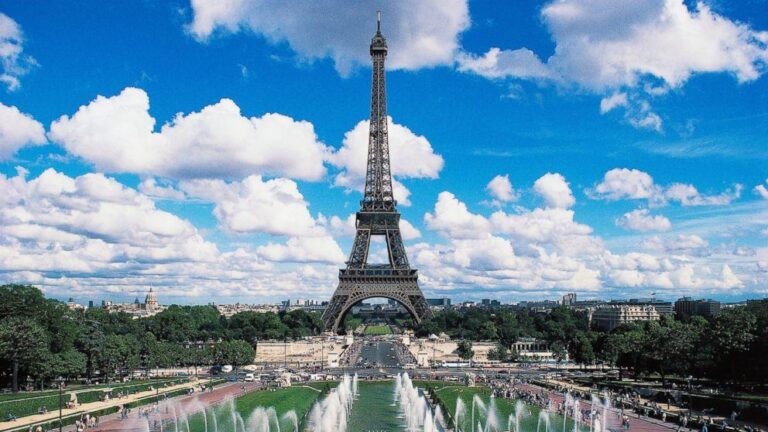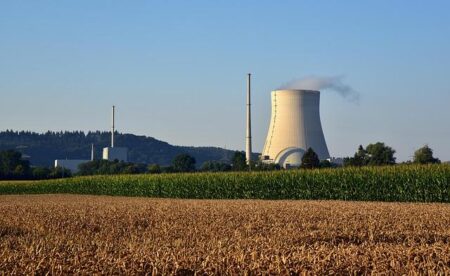France’s tourism industry continues to solidify its position as a global leader in travel and hospitality, drawing millions of visitors each year with its rich cultural heritage, iconic landmarks, and renowned cuisine. As the world’s most visited country, France plays a pivotal role in the international travel market, contributing significantly to the global tourism economy. This article examines the latest trends, challenges, and opportunities within France’s tourism sector, highlighting key developments that are shaping the future of travel in the region. From ongoing efforts to promote sustainable tourism to innovations in visitor experiences, we explore how France is adapting to evolving traveler expectations in a post-pandemic world.
France Tourism Industry Sees Resurgence as International Visitors Return
The tourism landscape in France is undergoing a significant revival as international visitors begin to pour back into the country, revitalizing local economies and cultural hotspots. Major cities like Paris, Lyon, and Nice are witnessing a surge in hotel bookings and museum attendance, signaling a return to pre-pandemic vibrancy. This resurgence is driven by a combination of eased travel restrictions, comprehensive vaccination campaigns, and targeted marketing initiatives promoting France’s rich history, world-class cuisine, and iconic landmarks. Additionally, emerging trends indicate that travelers are seeking more immersive and sustainable experiences, leading to increased interest in rural regions and boutique accommodations.
Key highlights of the current tourism rebound include:
- Over 30% increase in international arrivals compared to the previous quarter
- Revamped cultural festivals and outdoor events attracting diverse audiences
- Growth in eco-tourism with approximately 15% more bookings in natural parks and reserves
- Enhanced digital infrastructure to improve visitor experience and safety
| Tourist Segment | Growth Rate | Top Destination |
|---|---|---|
| European Travelers | 35% | Paris |
| Asian Tourists | 22% | French Riviera |
| American Visitors | 18% | Loire Valley |
| Eco-conscious Travelers | 15% | Provence |
Exploring Regional Destinations Driving Growth Beyond Paris
As travelers increasingly seek authentic and diverse experiences, France’s regional destinations are emerging as key drivers of growth in the tourism sector. Destinations such as Provence-Alpes-CĂ´te d’Azur, Brittany, and Nouvelle-Aquitaine are witnessing a surge in visitor numbers thanks to their rich cultural heritage, stunning landscapes, and culinary excellence. Notably, these areas offer a blend of historic charm and contemporary attractions that appeal to a broad spectrum of tourists, from cultural connoisseurs to adventure seekers. This shift signifies a movement away from the traditional Paris-centric travel model, promoting sustainable tourism development across the country.
The rise of regional tourism is also impacting local economies positively, with increased investment in infrastructure and services enriching visitor experiences. Below is a snapshot of key metrics reflecting regional tourism growth compared to Paris:
| Region | Annual Visitor Growth (%) | New Tourism Ventures | Unique Attractions |
|---|---|---|---|
| Provence-Alpes-CĂ´te d’Azur | 12.3 | 45 | Lavender fields, coastal trails |
| Brittany | 9.8 | 30 | Medieval towns, rugged coastline |
| Nouvelle-Aquitaine | 11.5 | 38 | Vineyards, seaside resorts |
| Paris | 4.7 | 22 | Museums, iconic landmarks |
Regions are leveraging their natural resources and local traditions to create immersive experiences-from wine tourism and culinary festivals to outdoor adventures and heritage trails. This diversification fuels year-round tourism, reduces seasonal volatility, and amplifies France’s global appeal beyond the capital city.
Sustainable Travel Initiatives in France Offer New Opportunities for Tourists
France is rapidly embracing eco-friendly alternatives across its tourism sector, making it easier for visitors to explore the country without compromising environmental values. Several regions have introduced carbon-neutral transportation options, including electric bike rentals, solar-powered boats along famous rivers, and expanded high-speed rail networks utilizing renewable energy sources. These efforts aim to reduce tourists’ carbon footprints while enhancing their travel experiences through innovative, sustainable mobility solutions.
In addition to transportation, initiatives focused on responsible accommodation and local engagement are gaining momentum. Many hotels and inns now proudly display eco-certifications and offer programs encouraging guests to participate in waste reduction and water conservation activities. Visitors can also take part in immersive cultural experiences that promote sustainability, such as organic vineyard tours and community-led heritage preservation projects.
| Initiative | Region | Benefit |
|---|---|---|
| Solar-Powered River Cruises | Loire Valley | Zero emissions, unique sightseeing |
| Electric Bike Rental Schemes | Provence | Reduced local pollution, healthy exploration |
| Eco Certified Hotels | Paris & Lyon | Energy-efficient stays, guest participation |
| Organic Vineyard Tours | Bordeaux | Support for sustainable agriculture |
The Conclusion
As France continues to captivate travelers with its rich history, diverse landscapes, and cultural allure, the nation’s tourism industry remains a vital pillar of its economy. Moving forward, stakeholders are focused on sustainable growth and innovation to meet evolving traveler expectations in a post-pandemic world. With concerted efforts from the government and private sector alike, France is poised to maintain its position as one of the world’s premier tourist destinations, offering visitors an enduring blend of tradition and modernity.




